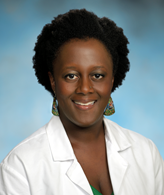How I Learned That Abortion Care is Health Care by April Lockley
 During my senior year in college, I was often asked: what are you going to do when you graduate? I thought about getting a doctorate in psychology. I went to open houses at various schools, but it just didn’t feel right. That started my journey into becoming a doctor – and pretty soon, an abortion provider.
During my senior year in college, I was often asked: what are you going to do when you graduate? I thought about getting a doctorate in psychology. I went to open houses at various schools, but it just didn’t feel right. That started my journey into becoming a doctor – and pretty soon, an abortion provider.
I hadn’t heard the word abortion throughout my medical school training, even during the beginning of residency. After networking and talking to other people, I started to learn about women’s health. And once I heard about abortion, it was like entering a whole new world.
During my first rotation as an abortion provider, I felt nervous, but everyone was supportive. I spent time with a patient going through all the steps. She had a transvaginal ultrasound and I had no clue what I was looking at.
Then there was a counseling session, and I listened to the patient confidently say that she was making her own decision to have an abortion. There was no sob story. She just knew she needed one, and that’s why she was there.
In 4 minutes, the abortion was over. The patient thanked us. She thanked the nurses. And she continued on with her day.
That really solidified my decision to become an abortion provider. That moment I learned that abortion care is health care.
Since then, I’ve seen hundreds of patients, of all races, all ethnicities, all income levels. The statistic that 1 in 4 women will have an abortion is so true. Not every abortion is for the hypothetical single mom with four kids who just lost her job and is about to become homeless. That is not every patient’s story.
I learned that as a family medicine doctor, sometimes we need to prescribe antibiotics for pneumonia, sometimes we need to comfort a patient as they’re about to take their last breath, and sometimes, we need to provide them with an abortion when they no longer want to be pregnant.
April Lockley is currently a fellow with RHAP’s Reproductive Health Care and Advocacy Fellowship, where she is learning to integrate full-spectrum reproductive health care into her family medicine practice.
